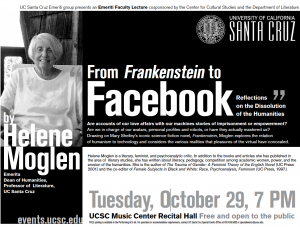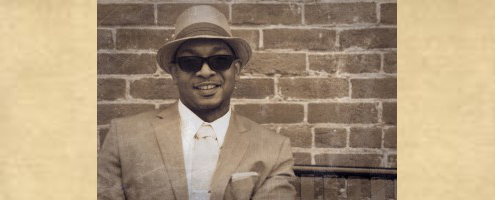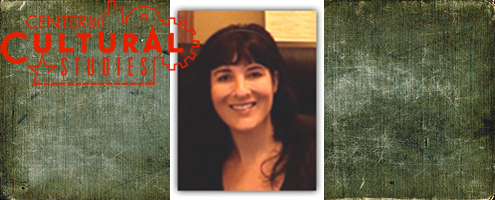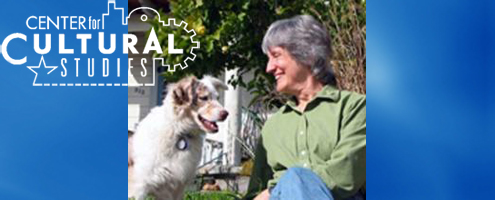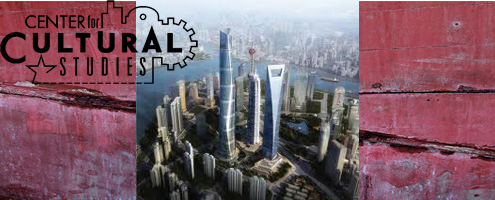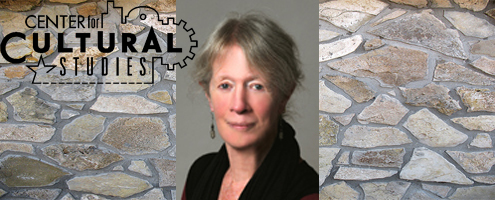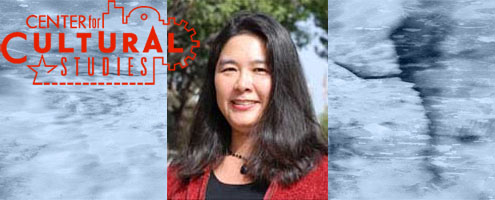The Affect Working Group Research Cluster of the IHR presents :
“Occupation Affect: On Political Emotion” Conference
“Occupation Affect” seeks to take the emotional pulse of the current moment. Staging a day of public talks and a roundtable discussion, followed by a half-day meeting, we will gather a group of scholars to investigate the feelings that permeate both this era of economic collapse and the modes of adaptation as well as rebellion that have arisen in its midst. We want to explore the affective dimensions of the Great Recession and jobless “recovery,” of bail-outs and sell-outs, of tea parties and coffee klatches, of magnificent inequality and vanishing public services, of the growing concentration of wealth and the emergence of autonomous, decentralized social movements, of hopes dashed and hopes raised, of diminishing faith in government and expanding political imaginaries, of economic freefall and resurgent activist energy. We will, in short, investigate the current conjuncture through the lens of political emotion.
In this moment of economic restructuring toward an uncertain future and growing rebellion against the neoliberal global order, we are curious about ordinary and extraordinary affects: their circulation and effects, how we feel them and what we do with them, what they signal and what they obscure, how they use us and how we might use them. We want to better understand the conditions of possibility for political hope and despair; the sources and effects of apocalyptic feelings; and how senses of impossibility sometimes fade and new horizons suddenly emerge. What do we all do to stay afloat, what new subjectivities are arising amid ongoing crises, what new social relations, new ways of thinking, feeling, and doing, are being generated in the current conjuncture?
Feelings, emotion, and affect have continued for over a decade now to fascinate scholars across the disciplines. The terrain is slippery, taking as its object of research viscerality, nonrationality, the sensed, that which is bodily, inchoate, ineffable, and to the side of consciousness. We wish to investigate the theoretical, philosophical, and political trajectories the affective turn opens up for making sense of, and figuring out how to intervene in, the contemporary moment.
The Affect Working Group draws together faculty and graduate students from across the University—American Studies, Anthropology, Art, Computer Science, Feminist Studies, Film and Digital Media, History of Art and Visual Culture, History of Consciousness, Latin American and Latino Studies, Literature, Politics, and Sociology—who are interested in the felt dimensions of social life. With this conference, we hope to advance our discussions with one another and contribute to a larger discussion among similar research/art/activist collaboratives around the country, including Feel Tank Chicago and Public Feelings groups in Austin, Texas and New York City.
Conference Schedule, Saturday, Humanities 210
9:00 a.m. – Breakfast
9:30 a.m. – Introduction
10 – 11:30 a.m.
Panel 1: Political Emotion and Activist Affect: Occupy and other Social Movements
Moderator: Dean Mathiowetz (Politics, UCSC)
Elizabeth Freeman (English, UCD)
Debbie Gould (Sociology, UCSC)
Lyn Hejinian (English, UCB)
Rei Terada (Comparative Literature, UCI)
11:30 a.m. – 1 p.m.
Panel 2: Affective Technologies and New Media
Moderator: Sharon Daniel (Film & Digital Media, UCSC)
Herman Gray (Sociology, UCSC)
Kim Lau (Literature, UCSC)
Soraya Murray (Film & Digital Media, UCSC)
Noah Wardrip-Fruin (Compute Science, SOE, UCSC)
1 – 2:15 p.m. – Lunch
2:30 – 4 p.m.
Panel 3: The Politics of Ordinary Affect
Moderator: Carla Freccero (Literature, History of Consciousness, Feminist Studies, UCSC)
Mel Chen (Gender & Women’s Studies, UCB)
Arlie Hochschild (Sociology, UCB)
Jerry Neu (Humanities, UCSC)
Sianne Ngai (English, Stanford)
4 – 4:15 p.m. – Coffee break
4:15 – 5:30 p.m. – Concluding Roundtable
Karen Barad (Feminist Studies, UCSC)
Vilashini Cooppan (Literature, UCSC)
Sharon Daniel (Film & Digital Media, UCSC)
Dee Hibbert-Jones (Art, UCSC)
Dean Mathiowetz (Politics, UCSC)
Vanita Seth (Politics, UCSC)
Anna Tsing (Anthropology, UCSC)
Organizational Meeting of UC Affect Network, Sunday, Humanities 202
9:00 a.m. – Breakfast
9:30 – 12 noon – Meeting
12:15 p.m. – Lunch
Contact:
Carla Freccero / freccero@ucsc.edu or
Debbie Gould / dbgould@ucsc.edu
Funded in part by UCSC’s Institute for Humanities Research and the University of California Humanities Research Institute.
Staff assistance provided by the IHR.

